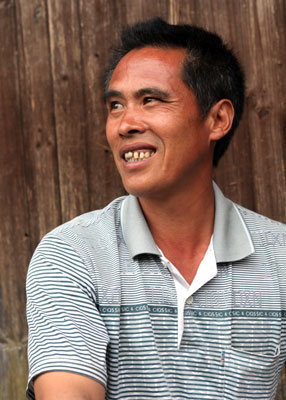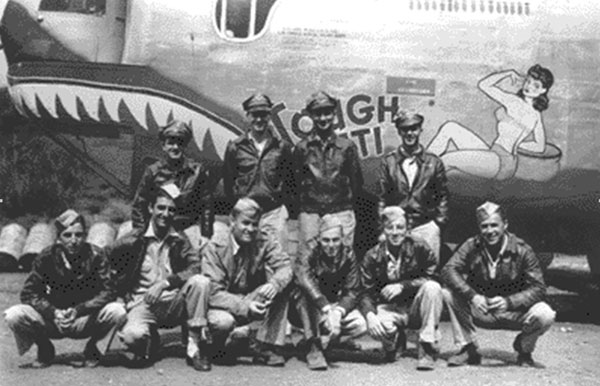Lost and found bomber brings explosive life changes
In 1996, Jiang Jun and his brother-in-law Pan Qibin discovered a crashed WWII-era B-24 bomber that had belonged to the American Volunteer Group, nicknamed the Flying Tigers.
 |
|
Jiang Jun says the hug he received from a former US Flying Tiger is much better than the US president's thank-you letter his brother-in-law got. [Photo by Huo Yan/ China Daily] |
Voice of America reporter Stephanie Ho later fell off a cliff during her interview at the crash site.
Jiang, Pan and a local driver rescued her. Jiang made a living farming but occasionally would secretly hunt locally protected wood frogs for extra cash.
Pan received a letter of recognition from Bill Clinton on March 19, 1997, for rescuing Ho.
He has since remitted money to her. She now owns a three-story, 500-square-meter restaurant.
Her eatery, named after her husband, is now rented out to a local couple. It has become a secret casino with two rows of slot machines.
Above the machines on the wall still hang reports about Pan's and Jiang's discovery and the US reporter's rescue.
"Pan got his green card in the US," village chief Su Weishang says.
"His life was changed by the incident. Jiang has stayed in the village and lives a totally different life."
Jiang applied for a US visa twice - in vain.
He says the visa official told him: "What you have done is already history."
Jiang says: "When I saw the big building belonging to Pan's family and my dilapidated bungalow built 100 years ago, I felt life was unfair to me. I was low. I even lost hope for the future."
Jiang lives with his 84-year-old mother. He says he's single because he's poor.
"It took me two years to pull myself together and start a new life in 2002, when my mother got cerebral apoplexy and cataracts," he recalls.
"I'm her only caretaker. Her suffering awakened my sense of responsibility."
 |
|
The ten airmen of US Flying Tigers on board of the B-24 bomber wreckage found by Jiang Jun in Mao'ershan Mountain in Xing'an county in Guangxi. [Xing'an county government provided for China Daily] |
Jiang's illiterate mother suffers migraines and is almost blind. But she refuses to go to the hospital because it's too expensive.
When asked in 1997 what they wanted as a reward for their discovery, Pan and Jiang told the government their village needed electricity and an elementary school. The government fulfilled their requests within two years.
"I don't want to go anywhere else now. I belong to the mountains," Jiang says.
"I learned traditional Chinese medicine from a 1960s book left by my father. I collect mountain herbs for my mother. I don't catch wood frogs so often because they're almost all gone now."
He has a rice paddy.
"Life is normal and peaceful now," he says.
"Pan called me three years ago and told me about his new life there. I only said: 'Good luck, and take care'."
Jiang was invited to a 2005 reception organized by the local government for Flying Tigers' children in his hometown.
"I didn't know the old US pilot who embraced me so tightly. But we both shed tears. He said 'thank you' again and again," he recalls.
"I only smiled in return. I think that old man's hug is much better than the US president's thank-you letter."





















